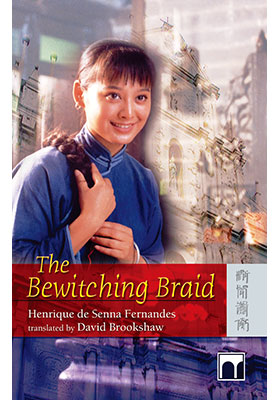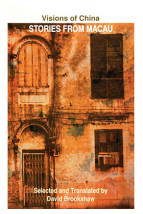The Bewitching Braid
(大辮子的誘惑)
ISBN : 978-962-209-718-6
August 2004
212 pages, 6″ x 9″
Not for sale in Macao SAR
- HK$125.00
Ebooks
Also Available on
The Bewitching Braid, set in Macau in the 1930s, is a tale of forbidden love between a Macanese boy from a privileged family in the ‘Christian’ city and a beautiful water-seller from the ‘Chinese’ quarter of Cheok Chai Un. Against a background of small-town prejudice, the story traces the trials and tribulations of the couple in their attempts to be accepted in their respective communities and to understand each other across their cultural divides.
The novel is a fascinating look into the inner world of the Eurasian inhabitants of the city, and their relationship with their Chinese and Portuguese legacies. Here, Senna Fernandes depicts the emergence of a new, more liberal Macao, in which its Portuguese and Chinese traditions were harmonized by true love.
The original Portuguese version, A Tranca Feiticeira, was made into a successful film in 1997.
“Details the complex realities that beset a romance reaching across cultures and classes in 1930s Macao, of a poor Chinese water-seller whose braid imbues sweet sensuality for a Portuguese society playboy. Its ending is hopeful, even surprising, rather than sentimental; as one character says: ‘The union of their souls, so different in their background and culture, shouldn’t surprise anyone. This, after all, is Macao’” —Xu Xi
“A fine piece of writing that speaks not only of Macau’s uniquely Eurasian society but of human experience at the most universal level. The characters—their humanity and their dignity—are sensitively drawn and the narrative is absorbing.” —Alice Clemente, Brown University




